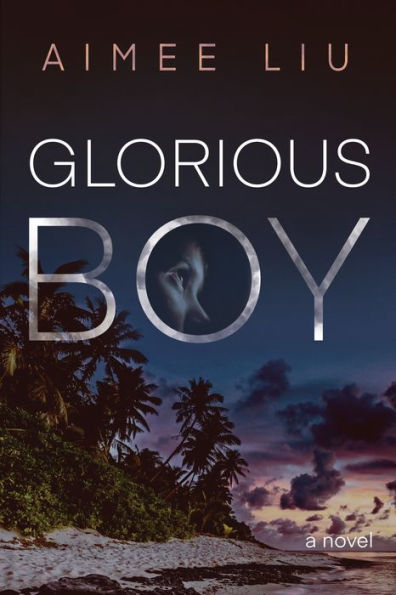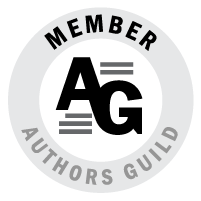The 3 M's That Forecast a Bestseller
.jpg)
The Rule of 3 M’s
The question on the table was how this Big Four publisher decides which projects to bet big on. She’d just finished telling my Author and me that she loves Big Idea books and that, after 20 years in the trenches, she’s earned the right to focus exclusively on her own passion projects. But by her own admission, she has a wide array of interests and enthusiasms, so we were still unclear how she narrows the field — and whether our project hit her marks.
That’s when she explained, “I have a pretty tried and true formula for a hit. It takes the right message, delivered by the right person, at the right moment.” In other words, Message, plus Messenger, plus Moment.
Now, this publisher specializes in nonfiction, but she applies this formula when considering any genre, especially when bidding for a book runs high. You can see why this matters to you as an author.
So, let’s unpack those three magic M’s.
You need to know your shit. And you need to have it framed and organized in a way that communicates to readers why and how it matters.
1. The right Message
How an editor defines “right” is a highly subjective affair. Given the time, money, and reputation that editors must invest in their selected titles, they naturally gravitate to topics that personally interest them — and steer clear of those they don’t. I know of one editor, for instance, who refused to have anything to do with books involving children, including novels about families with young kids. [This is the kind of intel that agents have; it’s one reason you need an agent to determine which editors to approach.]
Having said all that, there are a few elements of the “right message” that apply across the board. Assuming they’re interested in the overall genre and theme of your book, all editors will be looking for ideas that are:
-
Fresh and authentic. Every editor sees hundreds, if not thousands, of book proposals each year. No matter how well written, a concept that they’ve read dozens of times is not going to wow them. Nor will they be receptive if a book “just like” yours made the bestseller list. Editors want to feel that they’re part of something truly new, not a rehash of old ideas.
-
Galvanizing. Editors, like readers, love that goose-bump sensation of discovering something that truly, deeply affects them. Whether it’s the product of a story that moves them to tears, or a nonfiction concept that they can’t wait to share with everyone they know, this personal excitement is a must if they’re going to green light your book. What they’re looking for is a visceral sense that your story or subject has the power to change people’s outlook or even their lives, that it is genuinely significant and impactful.
-
Well thought-out and defined. It takes years to turn a great idea into a proposal that a major publisher will buy. By this I don’t necessarily mean years of writing time but, rather, years of living with the core ideas, considering them from every angle, scoping out their significance, interrogating and refining them. I mean that you’ve invested enough time and effort developing your ideas to honestly claim the expertise that qualifies you to write about them. You need to know your shit. And you need to have it framed and organized in a way that communicates to readers why and how it matters.
-
Clearly and beautifully presented. This is the most obvious part of the equation, but it’s meaningless without the elements above. I’ve gotten snagged on this rock myself: if you don’t have something significant to say, it really doesn’t matter how beautifully you say it. But once you have identified a strong and important concept, the quality of your prose can make all the difference in convincing editors that you have the chops to convey it to readers.
Your sales pitch must convince your editor that you will be a whole-hearted partner in making your book as commercially successful as possible. Full stop.
2. The right Messenger
Once upon a time, bestselling authors could score marketing points by being elusive and mysterious. Cue J.D. Salinger and Thomas Pynchon. But those days are over. Authors are required to sell not only their books but also themselves to potential readers. That’s the main reason publishers and editors meet with authors before deciding whether to bid on their books: they need to gauge whether the author has enough authority and marketability to qualify as the “right messenger” for their subject.
Some of their considerations:
-
Experience. This relates to knowing your shit, but it transcends the page. For memoirists, it means that you have sufficient perspective on your personal experience to convince potential TV or radio audiences that you a) really did live your story and b) you’ve distilled from that story meaningful insights that you’re ready to share. For nonfiction writers, it means that you are a bona fide expert in your field and that you are skilled at translating your field for lay audiences. For fiction writers and poets, it means that you can talk about your craft and passion in ways that will make audiences hunger for your books.
-
Stature. Publishers want to know that the author’s professional credentials will expand the reach of their book. A leading NIH researcher will impress a broader swath of science book buyers than will a graduate assistant. A writer for the New Yorker will likely attract more fiction readers than a novelist who’s never been published. But stature isn’t always a function of professional status. Publishers also tend to favor authors who embody stature by proudly and compellingly representing their culture or community. Even debut authors.
-
Appeal. Media is an unavoidable part of the rollout for any published book. The higher a publisher’s investment, the more an author’s comfort with social and broadcast media matters. Yes, the number of followers is important. So is your presence online as a blogger or influencer or commentator. But even if you have no platform when you sell your book, the publisher is going to want to know that you make a good impression when you talk about your subject. It’s not necessarily a beauty contest, but the more calm, confidence, and charisma you can exude, the better.
-
Buy-in. A lot of Salinger/Pynchon throwbacks still complain about book marketing as if it’s beneath them. I say, get over it. If you should be so lucky as to garner a major publisher’s interest in your book, think of all the many ways you can possibly help promote your work when it comes out, and offer the best of those ideas. Your sales pitch must convince your editor that you will be a whole-hearted partner in making your book as commercially successful as possible. Full stop.
If you belong to a marginalized group, if you have a galvanizing story that’s never been told, if your voice is strong and fresh and ready to sing, this may just be your Moment.
3. The right Moment
This one’s largely out of your hands. It’s also a moving target. Editors usually decide to buy a book anywhere from one to four years before they publish it. And none of them has a crystal ball. Even the best laid plans can go sideways if, say, a global pandemic erupts. Yet publishers remain astonishingly optimistic.
Here are a few of the signals that might convince them the time is right to buy your book:
-
The topic is in the zeitgeist, preferably just below the surface. “Deaths of despair” has become a familiar phrase since economists Anne Case and Angus Deaton published their book by that name in 2020, but until then, few mainstream readers had any idea that there was an epidemic of suicide and overdose deaths among white working-class men. Books like this, which sound a wake-up call about important and unrecognized issues, benefit from the right Moment.
-
There’s never been a book about this vital subject before. Sometimes this is a matter of perception. Most readers felt that Malcolm Gladwell’s The Tipping Point was awakening them to a brand new concept. In reality, Gladwell’s mastery lies in narrating well established ideas so that they seem exciting and novel. But it works!
-
Your book offers a new way of understanding and approaching a problem that affects millions of readers. In nonfiction we see this promise in everything from diet and health to financial advice books. But we also see it in memoirs and fiction that offer timely stories about taboo subjects or underserved groups. I’m thinking, for example, of the view into homelessness offered by books like Nick Flynn’s Another Bullshit Night in Suck City and Jeannette Walls’s The Glass Castle.
-
You’re on the vanguard of an emerging group of authors. Publishing is changing. While the majority (95%!) of authors, editors, and publishers have historically been white, the entire industry is now welcoming many more diverse talents to join writers like Reyna Grande, Ayana Mathis, Tan Twan Eng, Jesmyn Ward, Viet Than Nguyen, Zadie Smith, and James McBride in changing the face of literature. If you belong to a marginalized group, if you have a galvanizing story that’s never been told, if your voice is strong and fresh and ready to sing, this may just be your Moment.
This is a post from the MFA Lore section of my newsletter. Check it out and subscribe HERE



